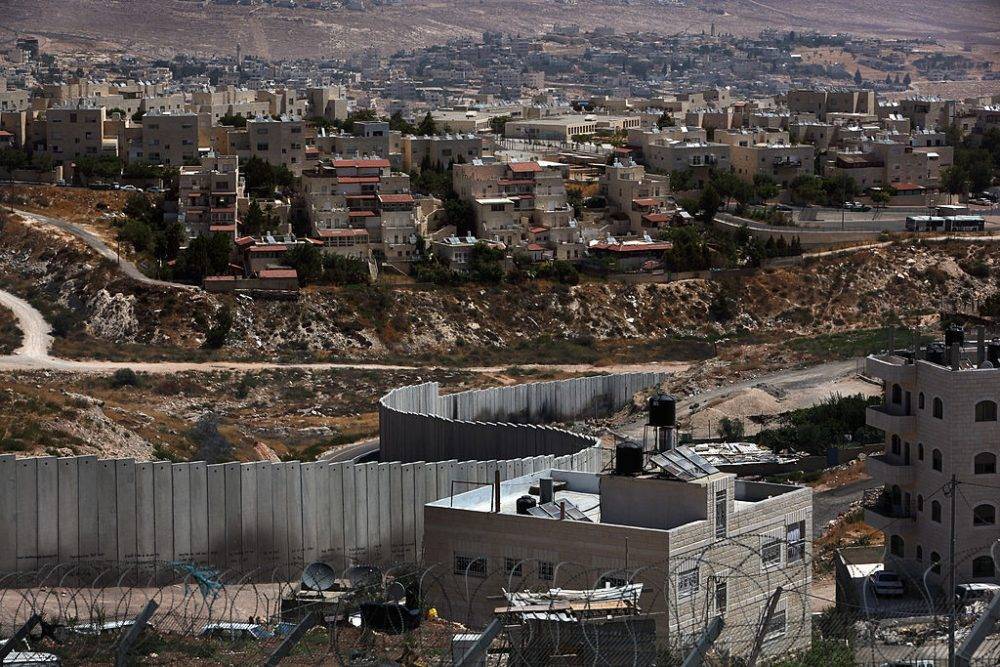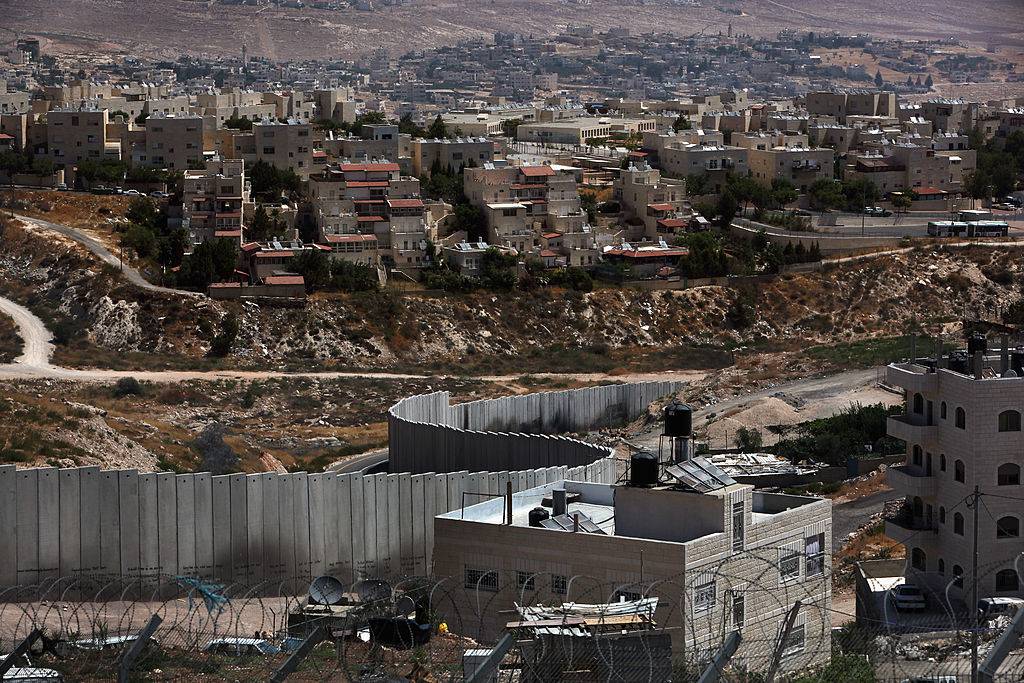
JERUSALEM – JULY 19: Israel's controversial West Bank barrier weaves between the Palestinian refugee camp Shuafat (front) and the Jewish neighborhood of Pisgat Ze'ev in East Jerusalem, which Israel seized from Jordan in the 1967 Six-Day War, on July 19, 2009. Prime Minister Benjamin Netanyahu said at his weekly cabinet meeting that Israel's sovereignty over the city was off the table, after the U.S. State Department told Israel's envoy in Washington to halt an Israeli right-wing construction project at the Shepherd Hotel in East Jerusalem's Arab neighborhood of Sheikh Jarrah. (Photo by David Silverman/Getty Images)
More than half of Israel's land is managed by the Jewish National Fund (KKL-JNF), an organization widely known for its reforestation, reforestation and environmental protection efforts. However, beneath this green exterior hides a far more controversial reality: KKL-JNF has played a key role in the confiscation of Palestinian land and the expansion of Israel's colonial settlement project.
KKL-JNF acquires Palestinian land on behalf of Jewish people. As of 2021, the organization controls 13% of Israeli land with a reported total income of NIS 1.2 billion (approximately R5.78 billion). With 50 fundraising offices around the world, KKL-JNF cultivates an image of environmentalism and grassroots support in the Jewish community. However, its activities include purchasing land in Palestine and implementing so-called environmental projects that support illegal settlements, contributing to the continued displacement of Palestinian communities inside and outside the Green Line.
This land-grabbing strategy is not new, dating back to 1948 when Israel transferred land it had seized from Palestine to the KKL-JNF, effectively circumventing the requirement for the land to be returned under UN resolutions. Land has remained central to Israel's power dynamics ever since.
In 1968, Prime Minister Levi Eshkol instructed KKL-JNF to purchase land in the West Bank through its subsidiary Himanuta, which specialized in acquiring land in occupied territories. By the mid-1980s, these land grabs had intensified with the support of right-wing settler groups such as Elad and Ateret Kohanim. While KKL-JNF is officially a public utility, Himanuta operates as a private company, allowing the organization to pursue its land-buying programs with fewer constraints.
In 2014, journalist Labiv Drucker exposed internal KKL-JNF documents revealing the group's extensive involvement in West Bank settlements, including building parks and purchasing land to expand illegal communities.
Some of the most problematic actions by KKL-JNF include:
- A decades-long legal battle to use absentee property laws to evict the Smarin family from their home. In partnership with Elad, a settler organization that openly seeks Jewish ownership of Palestinian property, KKL-JNF has evicted or attempted to evict numerous Palestinian families.
- In the village of Shusha in the southern Hebron Hills, KKL-JNF played a key role in the forced eviction of Palestinian residents. The organization featured Shusha in its propaganda booklets, promoting it as a “glamorous heritage site” exclusively for Israeli citizens.
- KKL-JNF also transferred seized land to the Efrat Regional Council, leading to the construction of 800 housing units in the E2 neighborhood, known as Nafra, which bisects the West Bank and impedes the development of Bethlehem.
KKL-JNF's influence is not limited to the West Bank. Inside the Green Line, the group has reforested Bedouin villages such as al-'Araqib, whose residents have resisted more than 200 attempts by Israeli forces to destroy them. Similarly, KKL-JNF destroyed the village of Umm al-Hiran and built a Jewish town there.
In Galilee, KKL-JNF strategically outbid Arabs for land allocated for the development of Palestinian towns, ensuring that the land remains in Jewish ownership.
Moreover, KKL-JNF deliberately undervalued the stolen land in its financial statements, estimating its actual value to be 67 times higher than reported, an investigation by Maya Rosen and Daniel Roth found—a practice that evaded government oversight and taxation.
Former KKL-JNF chairman Avraham Duvdevani once said, “As long as the state of Israel exists, there will be a need for KKL-JNF to do the things that, for one reason or another, the state will not do.”
Despite its close ties to the state and quasi-governmental status, KKL-JNF operates under the guise of a private entity and conducts activities that the state cannot easily legitimize. The organization wields great power, holding six of the 14 seats on the Israel Land Authority Council and playing a key role in land allocation, development and planning, all of which it does with minimal oversight.
KKL-JNF's influence extends beyond Israel. In South Africa, KKL-JNF has branches in Johannesburg, Cape Town and Durban and proudly claims to be the main funder of the Zionist movement in the country. The organization has funded forests, roads and dams in Israel, and even erected a memorial in Ravi Forest to South African Israeli Defense Forces (IDF) soldiers who participated in past and ongoing conflicts. This assistance is in direct violation of South Africa's Foreign Military Assistance Regulation Act of 1998, which prohibits the provision of military assistance without authorization from the National Conventional Arms Board. To date, no South African IDF soldier has received such authorization and their actions are unlawful and subject to prosecution.
To justify its existence, the KKL-JNF in South Africa has initiated initiatives such as the JNF Walter Sisulu Environmental Centre in Mamelodi and the Mandela Park Peace Gardens, which stand in stark contrast to the principles of freedom, justice and dignity that Walter Sisulu and Nelson Mandela championed.
KKL-JNF operates on a global scale, using tax-exempt donations to greenwash past crimes and promote land theft. Currently, KKL-JNF is working with Israel to plant trees as a means to evict Palestinians from their land in the Al Naqab desert and relocate Jewish settlers under the pretext of making the desert bloom. This is a reminder that a seemingly innocuous act such as tree planting can be used by a colonial state like Israel to hide a much more sinister agenda. This is a cover-up that has been going on for 76 years and continues to this day.
Sozan Birdie Is a lawyer Based in Cape Town Interested in human rights.

